-
KOSPI 2577.27 -2.21 -0.09%
-
KOSDAQ 722.52 -7.07 -0.97%
-
KOSPI200 341.49 +0.02 +0.01%
-
USD/KRW 1396 -2.00 0.14%
S.Korea’s HMM expands bulk carrier fleet for stable profit
Shipping & Shipbuilding
S.Korea’s HMM expands bulk carrier fleet for stable profit
HMM focuses on oil tankers, car carriers among bulkers to maintain profitability amid the sluggish container shipping industry
By
Nov 02, 2023 (Gmt+09:00)
2
Min read
News+
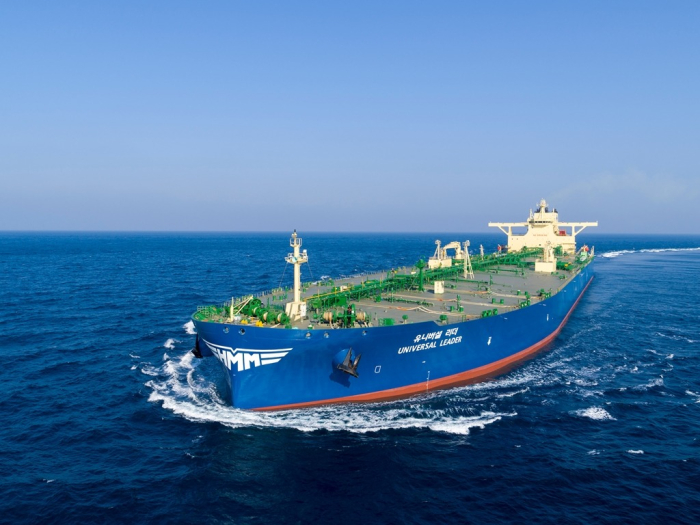
HMM Co., South Korea’s top shipping company, is expanding its fleet, especially bulk carriers, for stable profits amid the sluggishness of the global container shipping industry.
HMM aims to increase the number of bulkers it operates, merchandising ships specially designed to transport unpackaged cargo to 55 by 2026 from 29 as of end-2022. It has already added six bulk carriers this year and plans to introduce 11 more next year to reach the target. In August, it ordered four multi-purpose vessels.
Shipping companies often operate bulk carriers based on longer-term contracts than deals for container ships, thus bulkers offer more stable profits even when the global shipping industry slumps.
HMM signed a $954.2 million deal to charter four bulk carriers to an undisclosed customer from 2026 to 2042, according to its filing to a local financial regulator last week.
“The operations of bulk carriers are not as profitable as container ships but generate more stable profits,” an industry source in Seoul said.
HMM’s move came as the global container shipping market is expected to remain under pressure from oversupply for the time being.
The supply glut is predicted to last until 2025 as shipbuilders are scheduled to deliver the largest volume of container ships in years to shipping companies next year. HMM also plans to raise its container fleet to 100,000 twenty-foot equivalent units (TEUs) by 2025 from 80,000 TEUs this year.
The Shanghai Containerized Freight Index (SCFI), a barometer of global freight rates, has been sluggish this year, hovering around 1,000, a breakeven point for shipping companies.
Such weakness is expected to put pressure on HMM, although the company is able to make profits through cost cuts even when the SCFI falls to 900, industry sources said.
OIL TANKERS, CAR CARRIERS
The bulk carrier business made up about 40% of HMM’s operation in 2010. But the company, formerly known as Hyundai Merchant Marine taken over by the state-run Korea Development Bank (KDB) in 2016, has sold some of its bulkers to shore up liquidity due to the slump in the global shipping industry.
HMM is trying to improve its business structure by increasing its bulker fleet, which enjoyed an operating profit of nearly 10 trillion won ($7.4 billion) last year.
The company, which South Korea has put up for sale, is focusing on oil tankers among bulk carriers as it pledged not to work on some cargoes such as iron ore, bituminous coal and liquefied natural gas in the coming years when it sold bulkers for them.
HMM in March ordered three pure car, truck carriers (PCTCs) to a Chinese shipbuilder, the first contract to buy car carriers since it sold a fleet for vehicle transportation in 2002.
The company aims to re-enter the business to take advantage of the growing import and export of electric vehicles.
Charter rates for a car carrier, which can transport 6,500 vehicles, have recently surged to $110,000 a day from $10,000 in 2020.
Write to Hyung-Kyu Kim at khk@hankyung.com
Jongwoo Cheon edited this article.
More To Read
-
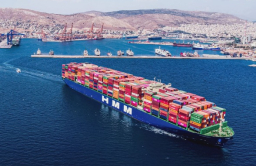 Shipping & ShipbuildingKorea's HMM creditors convert $739 mn bonds into shares
Shipping & ShipbuildingKorea's HMM creditors convert $739 mn bonds into sharesOct 20, 2023 (Gmt+09:00)
-
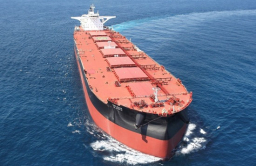 Shipping & ShipbuildingWoori, HMM, KOBC to buy bulk carrier operator Polaris
Shipping & ShipbuildingWoori, HMM, KOBC to buy bulk carrier operator PolarisSep 21, 2023 (Gmt+09:00)
-
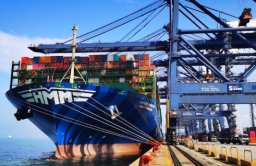 Shipping & ShipbuildingKorea's HMM bidders shortlisted to LX Group, Harim, Dongwon
Shipping & ShipbuildingKorea's HMM bidders shortlisted to LX Group, Harim, DongwonAug 30, 2023 (Gmt+09:00)
-
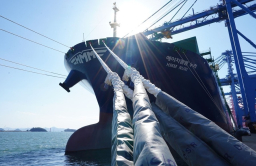 Mergers & AcquisitionsS.Korea kicks off privatization of top container line HMM
Mergers & AcquisitionsS.Korea kicks off privatization of top container line HMMMar 03, 2023 (Gmt+09:00)


